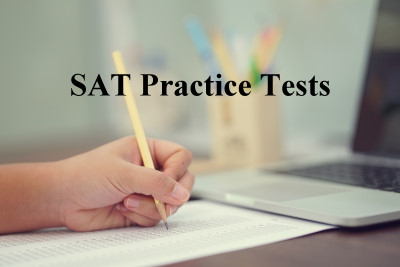The GRE (Graduate Record Examination) is a critical part of the graduate school application process. It assesses your skills in quantitative reasoning, verbal reasoning, and analytical writing. Achieving a high score can open doors to top-tier graduate programs. This article highlights seven smart strategies to help you improve your GRE quant and verbal scores and boost your confidence for test day. Whether you’re just starting or looking to fine-tune your prep, these tips will set you on the right track.
1. Understand the GRE Structure and Scoring
The first step in effective GRE preparation is understanding how the test is structured and scored. The GRE consists of:
- Verbal Reasoning (two sections)
- Quantitative Reasoning (two sections)
- Analytical Writing (one section with two tasks)
Scoring:
- Verbal and Quant sections are scored on a scale of 130–170.
- The Analytical Writing section is scored from 0 to 6 in half-point increments.
Familiarizing yourself with the test format will reduce anxiety and help you focus on what matters most.
2. Take a Diagnostic Test and Identify Weaknesses
Before diving into full-blown preparation, take a diagnostic test to determine your current level. This will give you a clear idea of your strengths and weaknesses.
Action Plan:
- Focus on your weak areas first. If your quant score is lower, spend more time on math fundamentals.
- Balance your study time between quant and verbal to ensure consistent improvement across sections.
3. Build a Strong Vocabulary for Verbal Success
The GRE verbal section tests your vocabulary knowledge extensively, especially in sentence equivalence and text completion questions. A strong vocabulary is crucial for success.
Tips to Build Vocabulary:
- Use GRE-specific word lists such as the Barron’s 333 High-Frequency Words.
- Make flashcards and review them daily.
- Read challenging material such as academic journals and opinion pieces to expose yourself to new words in context.
4. Master Quantitative Concepts and Strategies
The quant section of the GRE focuses on basic math concepts, but the questions are designed to test your reasoning and problem-solving skills.
Key Topics to Focus On:
- Algebra and geometry
- Data analysis and statistics
- Arithmetic and number properties
Strategy: Avoid solving every question through calculations. Learn to identify shortcuts and strategies such as back-solving or eliminating answer choices.
5. Take Full-Length Practice Tests
One of the most effective ways to prepare for the GRE is by taking full-length practice tests. They help simulate the test day experience and build your stamina.
Why Practice Tests Are Important:
- Familiarize you with the pacing of the exam
- Help you practice time management
- Allow you to track your progress and adjust your study plan
Tip: Analyze your mistakes after each test. Understanding why you got a question wrong is more valuable than simply noting that you missed it.
6. Use the Right Study Resources
Having access to quality study materials can make a significant difference in your GRE prep. Some of the best resources include:
- ETS Official GRE Materials – The most reliable source of practice questions.
- Magoosh GRE Prep – Offers video lessons, practice questions, and progress tracking.
- Manhattan Prep GRE – Known for its detailed explanations and challenging practice questions.
- Kaplan GRE Prep – Great for structured learning and access to live instruction.
If you’ve already prepared for other standardized tests like the ACT, you can adapt some strategies from the best ACT test prep resources for additional practice in problem-solving and reading comprehension.
7. Create a Study Schedule and Stay Consistent
A well-organized study schedule is crucial for staying on track and making steady progress.
Sample 8-Week Study Plan
- Week 1–2: Focus on reviewing the basics of quant and verbal. Take a diagnostic test.
- Week 3–5: Start targeted practice for weak areas. Take one full-length test per week.
- Week 6–7: Continue practicing difficult questions and refine your strategies.
- Week 8: Take two final practice tests and review key concepts.
Tip: Be consistent and avoid cramming. Even studying for 1–2 hours daily can lead to significant improvements over time.
Bonus Tip: Stay Calm and Confident on Test Day
Your mental preparation is just as important as your academic prep. On test day:
- Get a good night’s sleep.
- Eat a healthy breakfast.
- Arrive early and take deep breaths to calm your nerves.
Remember, you’ve prepared for this moment. Trust your practice and focus on doing your best.
Conclusion
Improving your GRE quant and verbal scores requires a combination of smart strategies, consistent practice, and the right resources. Focus on understanding the test structure, taking regular practice tests, and targeting your weak areas. Explore the best ACT test prep techniques for additional reading and math practice to boost your skills. With dedication and persistence, you’ll be well-prepared to achieve your target GRE score.
